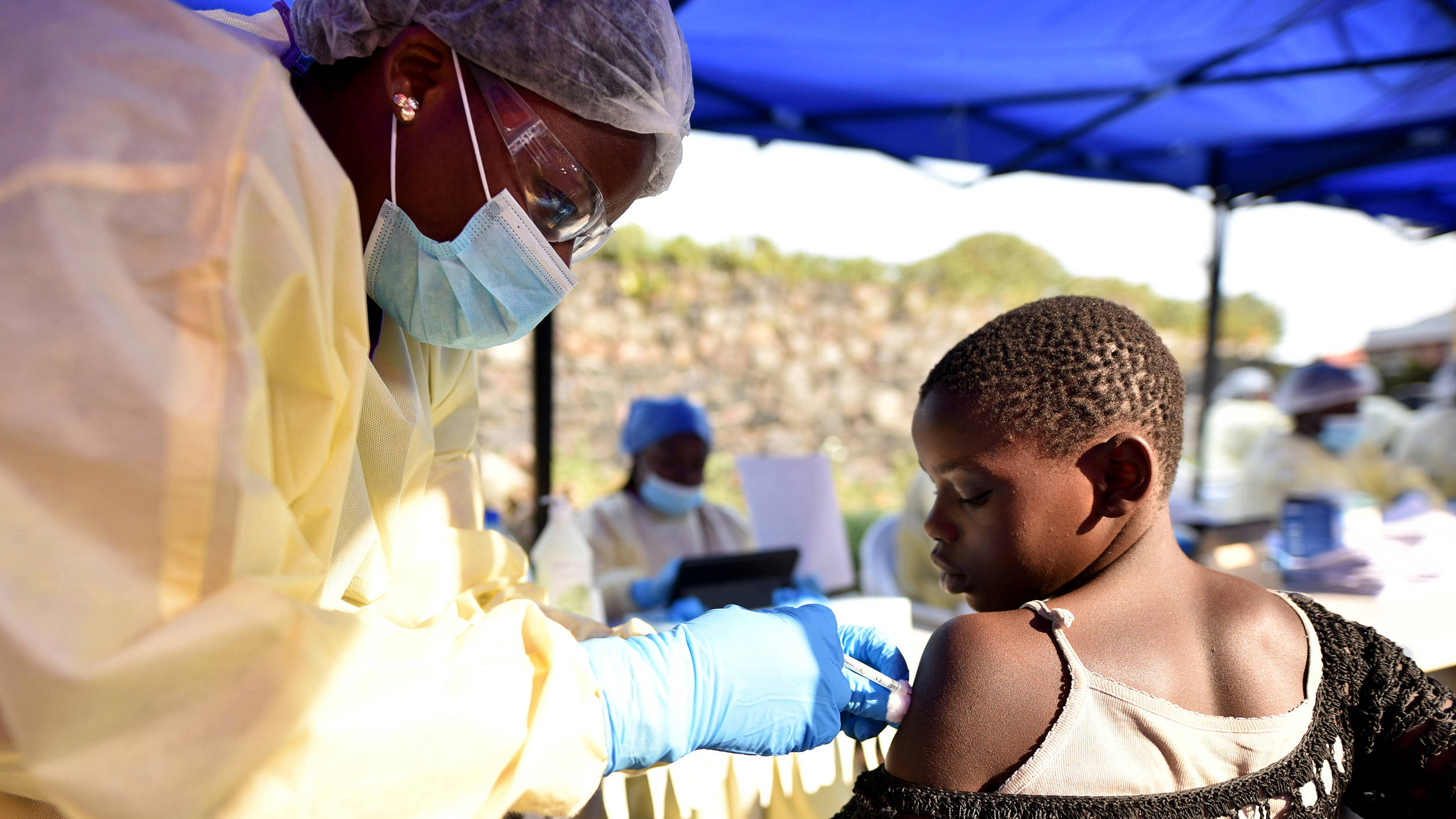

The World Health Organization is drawing global attention to an ongoing outbreak of Ebola in the Democratic Republic of the Congo (DRC) and has declared it a "public health emergency of international concern," a rare designation used only for the gravest epidemics, which has been applied only four times previously.
Since last August, the outbreak has killed over 1,700 people, more than two-thirds of those who contracted it.
CGTN journalist Chris Ocamringa, who is based in Kinshasa, DRC, reported that the daily death has reached 12 according to the official government, and the number is on the rise.
He added that the authorities in the DRC are very concerned, and President Félix Tshisekedi has appointed a new team of health experts who will be coordinating the response because he is not happy with the way things are turning out currently.
One of the biggest challenges of fighting with this horrible disease, as Ocamringa has pointed out, is not that it's not know how to cure it, but that some of the public have to be persuaded to trust medical workers.
Besides, cultural customs in the local area are another reason that has been raised. As Ocamringa said, when a loved one dies, people often keep close to them and touch the dead body. As the corpses of people who have contracted Ebola and died become very contagious, anyone who approaches the bodies might easily be infected.
Dr. Margaret Harris, spokesperson for the World Health Organization Ebola Response, also believes the mistrust problem has caused more infections.
More specifically, if one person has contracted the disease, he or she doesn't believe the medical workers, and won't come to identify their illness. People then stay at home, rather than go out to seek treatment, and this leads to other family members being infected.
She stressed it's tough to change people's habits and attitudes if they are suspicious of outsiders.
"The reason why Ebola keeps coming back is that the living habit in Congo is not good," said Professor Wang Yuedan from the Department of Immunology in the School of Basic Medicine at Peking University.
Prof. Wang also stated that since the economic level in the DRC is relatively low, local people who live in the suburban area can easily be infected by the virus because of inattention to sanitation and hygiene.
Both Prof. Wang Yuedan and Prof. Yu Wei, president of the China Health Innovation Platform, have suggested the DRC and other African countries could learn from China's experience with the SARS (Severe Acute Respiratory Syndromes) outbreaks back in the early 2000s.
For instance, the central government should play an essential role in constructing the disease control system, which is useful to prevent, surveil, and quickly respond to the outbreaks.
Another thing that China used to fight SARS was to improve the public health system, such as improving drinking water sanitary systems.

(If you want to contribute and have specific expertise, please contact us at opinions@cgtn.com.)

Copyright © 2018 CGTN. Beijing ICP prepared NO.16065310-3
Copyright © 2018 CGTN. Beijing ICP prepared NO.16065310-3